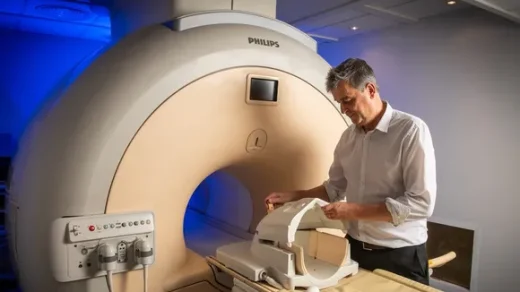Dance with Parkinson’s: Embracing Movement and Exercise
.jpeg)
When the rhythm of life changes due to Parkinson’s disease, it’s time to find a new beat. And that beat is often found in regular exercise and physical therapy. Regular movement can help manage stiffness, improve balance, and enhance overall mobility. Consider routines that incorporate strength training, stretching, and aerobic activities..jpeg)
Michael J. Fox says he’s suffered numerous injuries as a result of his Parkinson’s – CBS News
Michael J. Fox says he’s suffered numerous injuries as a result of his Parkinson’s.
Posted: Sat, 13 May 2023 07:00:00 GMT [source]
A noteworthy example is dance. Whether it’s tango, waltz, or freestyle, dancing can provide a fun and socially engaging way of exercising. Research suggests that dance can enhance balance, gait, and quality of life for people with Parkinson’s. So, put on your dancing shoes and sway to the rhythm of resilience.
The Art of Eating and Drinking in Parkinson’s
Maintaining a balanced diet is crucial for everyone, and particularly for those with Parkinson’s. Regular meals rich in fruits, vegetables, whole grains, lean proteins, and healthy fats can help maintain energy levels, body weight, and overall health..jpeg)
For those with tremors or stiffness, mealtime can be challenging. Specialized utensils, weighted crockery, or plate guards can make eating easier. Also, drinking from a cup with a lid or a straw can help manage tremors and prevent spills.
Some people with Parkinson’s might experience swallowing difficulties. In these cases, speech therapists can provide guidance, and a diet with softer, easy-to-swallow foods may be recommended. Remember, staying well-hydrated is equally important.
Unraveling the Threads of Sleep
Many individuals with Parkinson’s experience sleep problems. Having a regular sleep schedule, creating a restful environment, and avoiding caffeine and heavy meals before bedtime can help improve sleep quality. Gentle exercises like yoga or meditation techniques can also aid in relaxation and foster better sleep.
If symptoms like restlessness, vivid dreaming, or sleep apnea interrupt your sleep, a sleep medicine specialist might provide additional insights and therapeutic options.
Memory Lane: Navigating Cognitive Changes
Cognitive changes, from mild memory issues to dementia, can occur in Parkinson’s disease. A variety of strategies can be employed to manage these changes. Organizational tools like calendars, reminder apps, and sticky notes can help remember tasks and appointments. Regular mental workouts, like puzzles, reading, or learning a new skill, can help keep the brain active.
Professional help, like a neuropsychologist or a speech-language therapist, can provide personalized strategies for managing cognitive issues. In some cases, medication might be beneficial.
The Power of Support: Embracing Community
A Parkinson’s diagnosis can feel overwhelming, but remember, you’re not alone. Connecting with others who are on a similar journey can provide emotional support, practical advice, and a sense of community.
Parkinson’s Warning: UCLA & Harvard Researchers Identify 10 Neurotoxic Pesticides – SciTechDaily
Parkinson’s Warning: UCLA & Harvard Researchers Identify 10 Neurotoxic Pesticides.
Posted: Sat, 20 May 2023 07:00:00 GMT [source]
Parkinson’s support groups, whether in-person or online, can offer a safe space to share experiences and learn from others. Additionally, reputable organizations and websites provide a wealth of information, resources, and the latest research news..jpeg)
A Symphony in Harmony: Coordinating Care
A robust healthcare team is vital in managing Parkinson’s. This team can include neurologists, physical therapists, occupational therapists, speech therapists, dietitians, and mental health professionals.
Ensure regular communication with your healthcare team and don’t hesitate to discuss any new or changing symptoms. Your team is there to help you manage your symptoms, optimize your quality of life, and navigate the journey of Parkinson’s.
Living with Parkinson’s is a process of adaptation, finding new ways to do the things you love, and discovering strength you never knew you had. With proactive strategies, a supportive community, and a committed healthcare team, you can continue to compose your unique life symphony. Remember, in this symphony, you are the conductor.


